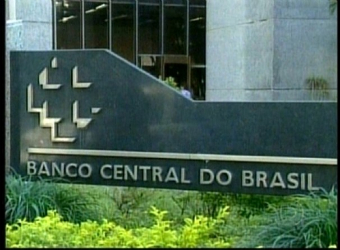Brazil’s central bank raised its benchmark interest rate on Wednesday by half a point to 10% as expected and hinted it may be about to switch gears.
The monetary policy committee unanimously voted to raise its Selic rate for a sixth consecutive time. In a post-meeting statement, the monetary authority reiterated it was “giving continuity” to the rate adjustment process as it tries to bring inflation down to the bank’s target of 4.5%.
Some slight changes to the communiqué triggered speculation that the central bank is about to slow or stop the rate hikes. More clarity is expected when the central bank publishes the full minutes of the meeting on Dec. 5.
“Our reading of this decision is that the [Central Bank of Brazil] is paving the way to start slowing the pace of monetary tightening and likely stopping after a final hike in January,” said Marcelo Salomon, an economist at Barclays Capital, in a note.
Since April, the central bank has raised rates from a record low level of 7.25%. Most economists agree there is a delay of between six to nine months before the increases start to take effect.
The central bank indicated that the inflation outlook is “less uncomfortable” and that the current level could be high enough to bring inflation down, said Cristiano Oliveira, of Banco Fibra SA in São Paulo, in a note.
Yet the central bank remains in a bind. Even as it raises interest rates to tame inflation that is running at an annual rate of 5.8%, the government has increased spending in an effort to spur sluggish economic growth. There has been no noticeable effect on inflation: economists expect the IPCA consumer-price index to vary little from current levels even with higher interest rates. The IPCA is seen ending at 5.82% this year and rising slightly to 5.92% next year.
“A Selic rate of 10.0% or even 10.5% is only enough to keep the inflation rate more or less where it is,” said Ilan Goldfajn, chief economist at Banco Itaú BBA SA. “To produce a significant decline in the inflation rate will be difficult. It will take concerted action by the government on the fiscal side.”
Such action is unlikely with an election looming and incumbent President Dilma Rousseff expected to seek a second four-year term in 2014.
“The Central Bank is acting [against inflation] on the monetary side because the federal government is not acting on the fiscal side,” said Marcelo Carvalho, chief economist for Latin America of BNP Paribas bank.
International credit rating agencies seem to agree. In recent weeks, they have criticized Brazilian spending and threatened possible sovereign credit downgrades for next year. In recent days President Rousseff’s administration signed a deal with legislators to hold off on laws that require new spending.
There may be more bumps in the road for inflation.
The likelihood of the U.S. Federal Reserve tapering its bond-buying program next year further complicates the Brazilian central bank’s efforts. The possibility that the Fed will withdraw stimulus has undercut Brazil’s real. The currency is down 12% against the dollar this year. Weakness in the Brazilian currency boosts the cost of imports and adds to inflationary pressures.
Moves by state-run oil company Petróleo Brasileiro SA also could interrupt the decline in inflation. The company, which has long kept domestic fuel prices steady even as global oil prices fluctuate, is now seeking to adjust prices. That would help it carry out its ambitious investment plan, but the government is concerned a change in fuel prices would undo moves to contain inflation.
Said Mr. Carvalho, “Brazilian inflation is currently under 6% only because of controlled prices, such as those for fuel. Inflation is really around 7%. Fuel prices have been repressed. They will have to have some relief at some point. That’s why we’re forecasting 2014 inflation of 6.5%, up against the ceiling again.”
Source: Marketwatch
